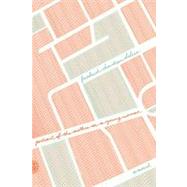
What is included with this book?
Friedrich Christian Delius, one of the most critically acclaimed contemporary German writers, was born in 1943 and lives in Berlin and Rome. He has published fifteen novels and five poetry collections, and has recently written the libretto for Prospero by Luca Lombardi. He has won most of Germany's prestigious literary awards--including the Joseph Breitbach Prize, the Georg Büchner Prize, and the Critics Prize--and his books have been translated into seventeen languages.
Jamie Bulloch has been a professional translator since 2001. His most recent works include The Sweetness of Life by Paulus Hochgatterer and Ruth Maier’s Diary.
“A revelation of humanism and hope almost musical in its intensity.”—Nicholas Lezard, The Guardian
“Bulloch’s excellent translation keeps the supple and rhythmic flow of Delius’s language. This is a small masterpiece.” —The Times Literary Supplement
“For, ultimately, it is what we know about the tragedy of World War II, and what Margherita does not, or will not . . . that gives this miniature its power.” —Time Out London
“Delius understands the forces that shape Germany and has the gift to articulate joy, beauty and love.” —The Independent
The New copy of this book will include any supplemental materials advertised. Please check the title of the book to determine if it should include any access cards, study guides, lab manuals, CDs, etc.
The Used, Rental and eBook copies of this book are not guaranteed to include any supplemental materials. Typically, only the book itself is included. This is true even if the title states it includes any access cards, study guides, lab manuals, CDs, etc.